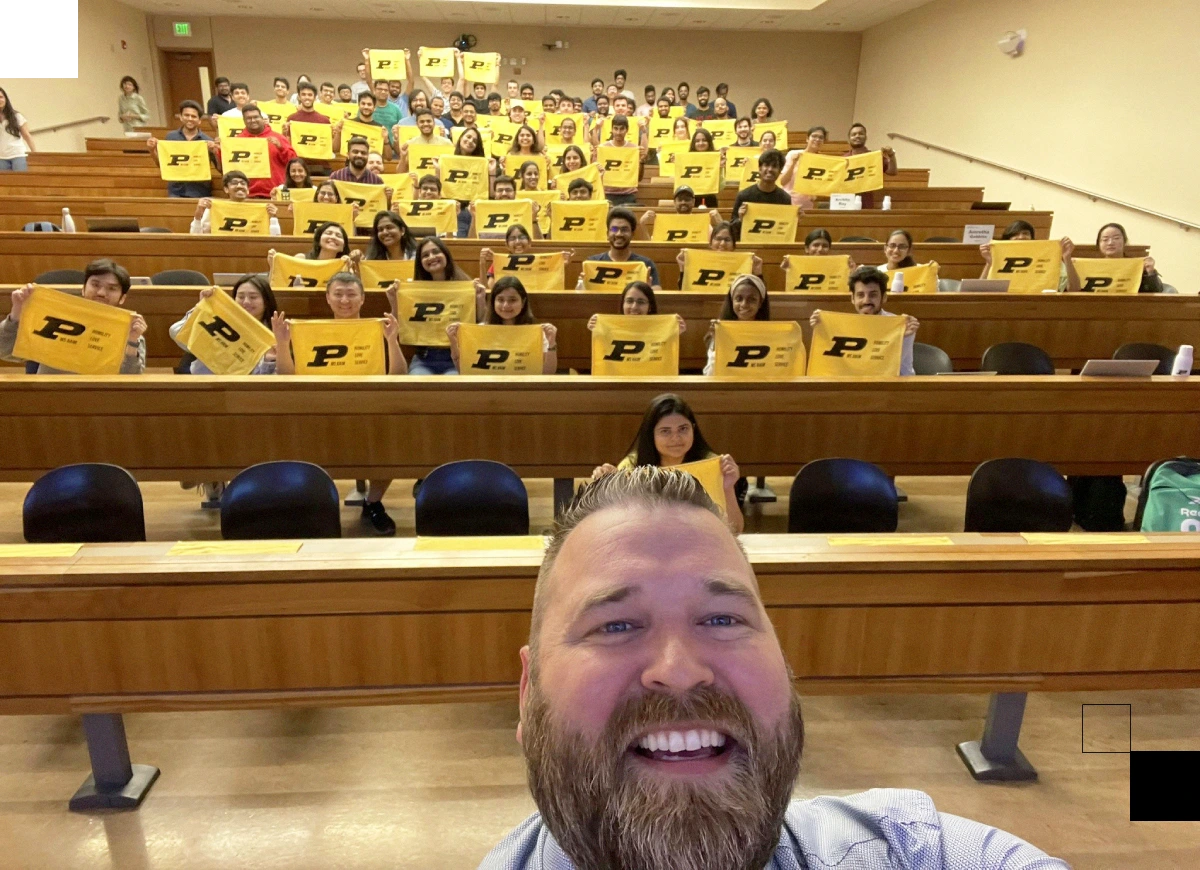
08-29-2024
Galatians 6:9 says “Let us not lose heart in doing good, for in due time we will reap if we do not grow weary.”
This September the Daniels School of Business will host the third annual national Data 4 Good case competition in a time of budget cuts, a weak tech job market, and a surreal political climate. When so many people seem to be mentally, spiritually, emotionally, or financially spent, you might ask, “Why should I care about Data for Good?”
The answer to that question might depend on how you define “Data for Good.” The Columbia University Data Science Institute defines "Data for Good" as using data science to address significant societal issues, including human rights, education, and healthcare, ensuring that data practices are fair, accountable, transparent, ethical, and secure, referred to as the FATES framework.
Another way one might think of Data for Good is anything that challenges you to exhort your time and resources on problems that touch the heart and help people progressively grow in skill or knowledge, or make better decisions.
Our first Data 4 Good case competition was sponsored by SIL International and focused on using data science techniques to create captions in various low-resource languages for children’s Bible stories. Who wouldn’t want to help create books that kids can actually read in areas where books are few and far between? Participants received state-of-the-art training on image processing and natural language processing techniques. Last year’s Data 4 Good competition, sponsored by Prediction Guard, focused on using Large Language Models (LLMs) to automatically transcribe conversations among physicians and their patients to reduce manual data entry from the physician. As expensive as health care is today, who wouldn’t want to learn new data science skills that could allow physicians to have more time spent with their patients, or possibly see more patients, to reduce operational inefficiencies?
This year’s Data 4 Good case challenge is sponsored by the Tragedy Assistance Program for Survivors (TAPS), a “national nonprofit organization providing compassionate care and comprehensive resources to all those grieving a death in the military or veteran community.” This competition is open to all undergraduate and masters-level students studying at United States institutions and awards $40,000 in student prizes!
According to Dr. Chantel Dooley, director of research and impact assessment for TAPS, “The goal of the competition is to use de-identified archival data and research to fully develop and refine our Survivor Journey Map. We know grief is unique across all impacted by a loss and our goal is to make data-driven decisions utilizing feedback and experiences of the military and veteran survivors we serve to improve our program and service delivery. We are so thankful for this opportunity to grow and provide an elevated level of compassionate care for all those we serve.”
The grief experienced among loved ones from fallen heroes is indeed a journey, and those suffering can grow weary without the right support. This competition provides students an educational opportunity to help TAPS better support those who are suffering, but also upskill in key areas to make them better analytics contributors and decision-makers.
Analytics training events include learning about LLMs, which are the engines behind the recent AI tools such as ChatGPT. Dr. Daniel Whitenack, founder of Prediction Guard, will teach students about Retrieval-Augmented Generation, a model architecture that combines retrieval-based methods with generative models.
One of the most important skills, possibly overlooked in some university analytics programs, is teaching students about the importance of following a process in designing and delivering analytics solutions. Prototyping is fun and has its time and place, but companies expect analytics professionals to know how to ensure the work being done will be put into action. Dr. Beverly Wright, VP of data science and AI at Wavicle Data Solutions, will teach how to follow the INFORMSCertified Analytics Professional Job-Task Analysis as a process framework for not only our case problem, but for any data analytics problem a participant will be tasked with in the future. Did you know CIO.com listed the INFORMS CAP as one of the top nine data analytics certifications in 2024?
Last but certainly not least, students will learn from PrimeAI CEO Aaron Burciaga some ethical considerations of AI. Without proper ethical frameworks, AI can lead to unintended consequences such as discrimination, privacy violations, and a lack of accountability when errors occur.
In summary, I know there appears to be many obstacles going on in the world right now, but Data for Good is exactly what you need! I always tell my students to focus on what they actually have control over and ignore those things that are out of their hands. Now is not the time to grow weary, but to focus and exhort your time and resources to help others. You will build your knowledge, skills, and abilities, and reap the fruits of your labor.
Matthew Lanham is a Clinical Associate Professor in the Daniels School of Business’ Quantitative Methods area and organizer for the national Data 4 Good case competition. He is the former academic director (2018-2024) for the award-winning and nationally recognized master’s program in Business Analytics & Information Management and 2024 recipient of the Daniels School’s Salgo-Noren Outstanding Master’s Teaching Award.